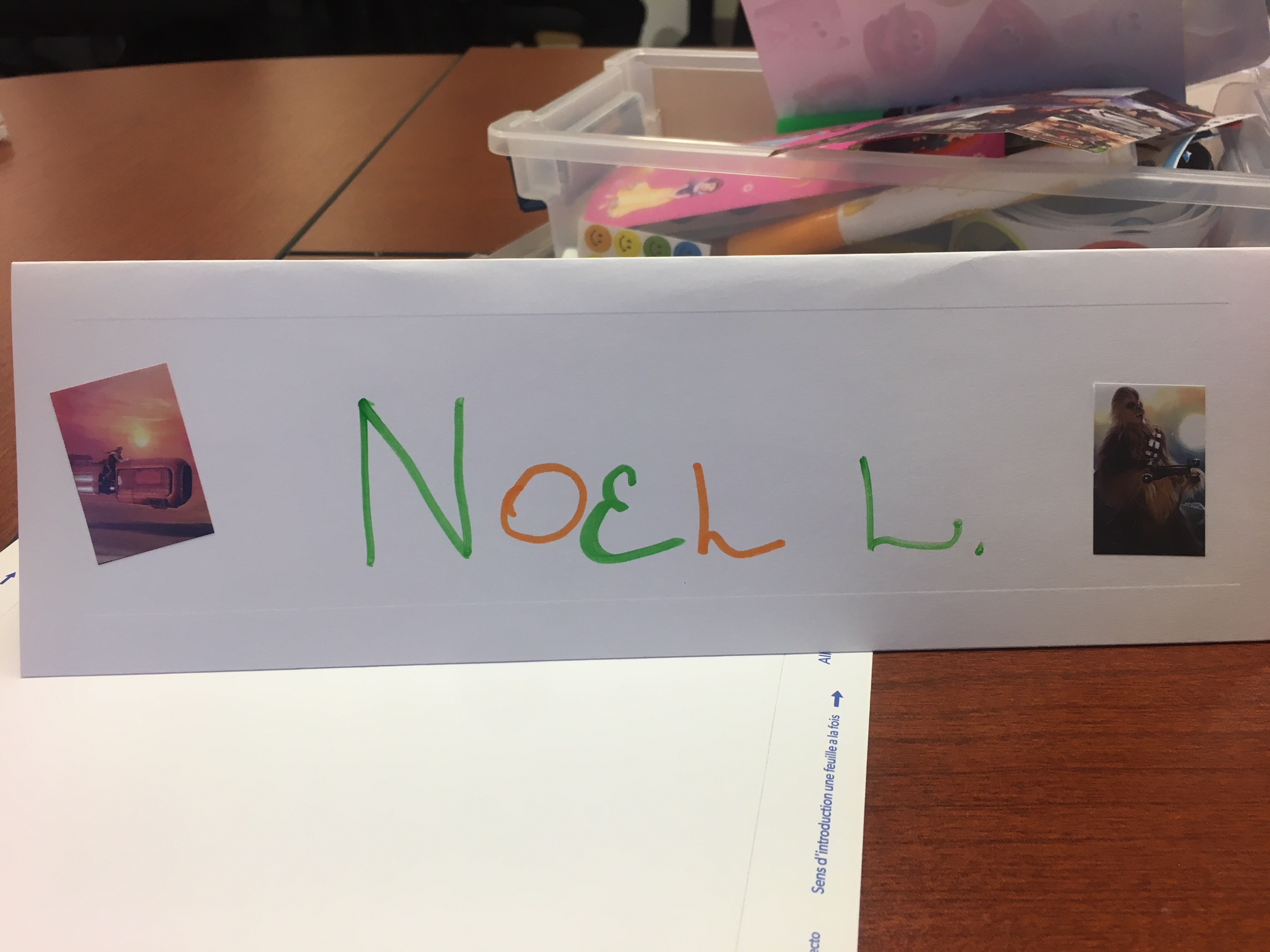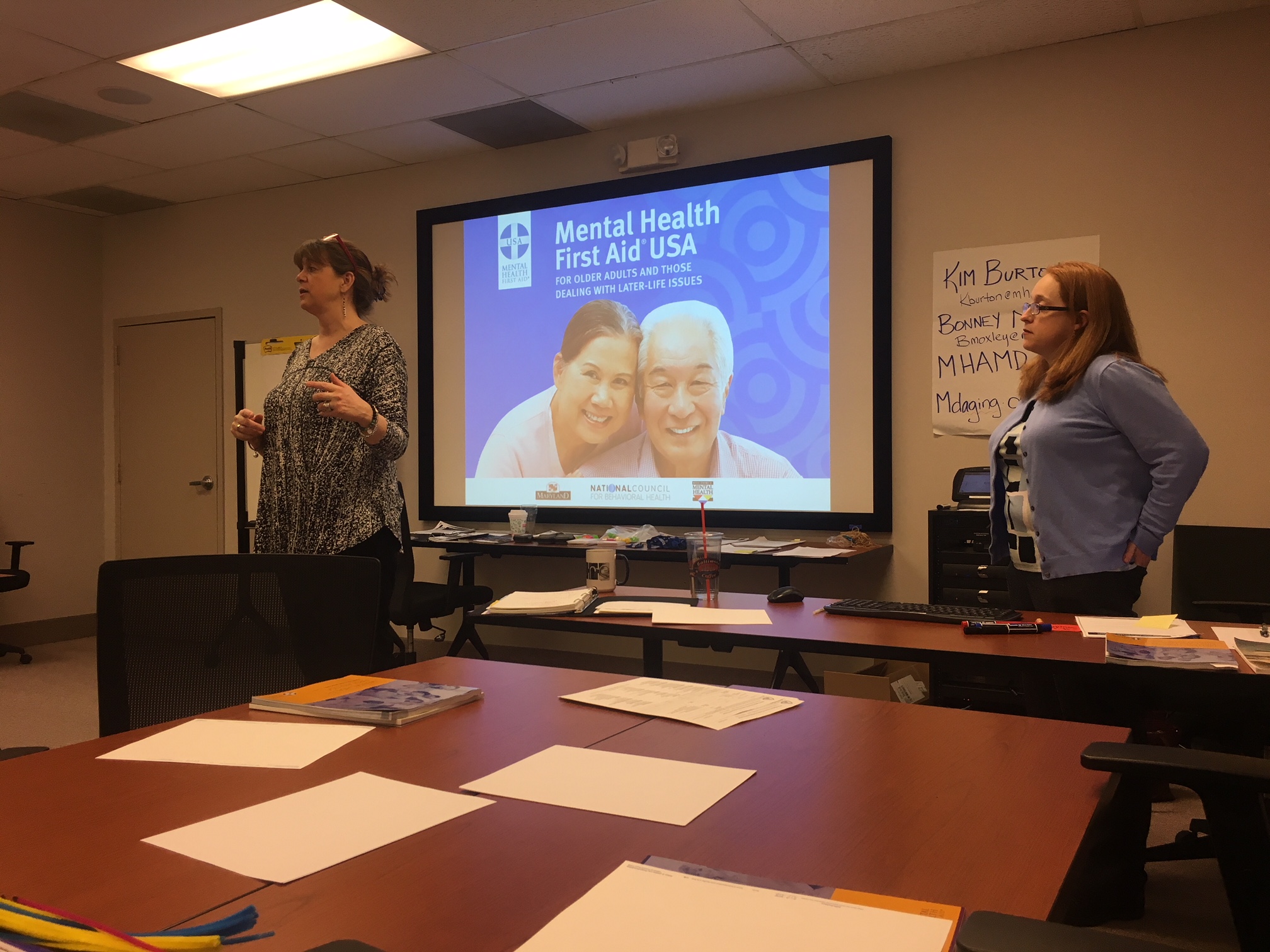A few weeks ago, I joined the Mental Health Association of Maryland as its communications director. One huge reason I came to work here was the opportunity to share what MHAMD does all across the state of Maryland.
As I learned more about MHAMD, I became very intrigued by one of its programs called Mental Health First Aid Maryland.
The Mental Health First Aid Maryland program “is an eight-hour national certification course that teaches lay people how to recognize the signs and symptoms of an emerging mental health problem or crisis, identify community resources, and link individuals in need of treatment and support to the proper resources.”
Or put more succinctly, this program is like CPR for mental health. And it’s designed to teach ordinary people like me how to respond to a potential mental health problem in its earliest stages.
Since 2007, the Mental Health First Aid program has trained more than 28,000 Marylanders through more than 2,000 classes. Once certified, a Mental Health First Aider can identify risk factors and signs for mental health and substance use problems and help someone in either a crisis or non-crisis situation.
I wanted to become one of these individuals. So, upon learning a training class would be held at our Lutherville office (I can’t beat the commute!), I signed up to participate.
The class was taught by trainers Kim Burton and Bonney Moxley. Program trainers like Kim and Bonney take a week-long course to earn their training certification. The particular course I took with Kim and Bonney had a specialized focus on older adults and mental health.
I arrived at 8 a.m. not quite sure what to expect. Here’s some of what I experienced:
I came into a training room filled with people, about 25 in total, from all over the Baltimore metro area. Many were health care professionals, but some were people like me, someone with no professional health care training.
My table was covered with markers, construction paper, and all other manner of creative items. My first task was to create my “name-plate.” I proudly display it below. (Arts and crafts were never my specialty.)
But then we got on to more serious topics. Throughout the morning, Kim and Bonney introduced us to all things mental health: Why it is important, the different conditions that affect it, and the misconceptions that often go along with these conditions.
What I appreciated about the class right away was the participation factor. Kim and Bonney didn’t just talk, they invited feedback from my classmates. That feedback added much more depth to my own learning experience. Many of my classmates work closely with older adults and caregivers. So they had a firsthand knowledge to contribute. The result was an ongoing conversation that taught me as much as the course material.
What I also enjoyed were the group activities. Working together with those around me incorporated a sense of community into the day.
After their overview of mental health, Kim and Bonney then shifted the focus to what we needed to know to respond to a mental health emergency. In short, it’s practicing ALGEE. As you might guess, it’s an acronym: A: Access the risk for suicide; L: Listen nonjudgmentally; G: Give reassurance and info; E: Encourage appropriate self-help; E: Encourage self-help and other support strategies.
The day ended with a test. Thankfully, Bonney and Kim helped make the test not so stressful. I can say with satisfaction that I passed! The eight hours weren’t spent in vain.
I am now certified in Mental Health First Aid and join the tens of thousands of people who can assist in a mental health crisis situation.
That class gave me a very helpful perspective on mental health and the skills to actively assist those with a potential mental health emergency. I encourage others to consider taking this course. For more information, please visit mhfamaryland.org.






